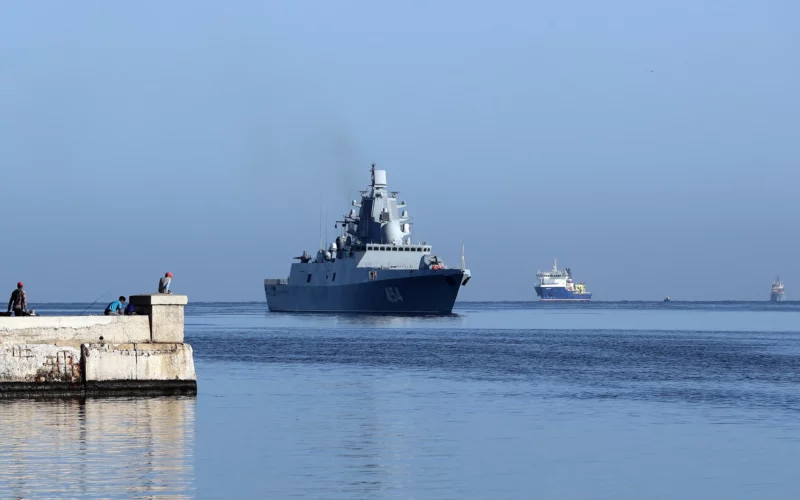A fleet of Russian warships entered Cuban waters on Wednesday in preparation for military drills in the Caribbean, a move experts interpret as a direct warning to President Biden.
This deployment follows Biden’s recent approval for Ukrainian forces to strike targets within Russia using U.S. weaponry. Rebekah Koffler, a strategic intelligence analyst and author of “Putin’s Playbook,” suggests that Russian President Vladimir Putin is sending a clear message to Washington. “Putin wants to be close to the U.S. homeland at this time when the Russia-Ukraine crisis is on a highly escalatory trajectory,” Koffler said. She emphasized that if Ukraine’s strikes on critical Russian targets escalate, the Russian military might enable Cuban forces to target U.S. interests.
On Wednesday, three Russian warships arrived at Havana Bay in Cuba, greeted by a 21-cannon salute. A nuclear-powered submarine, the Kazan, is also expected to join them. Russia has stated that the Kazan is not carrying nuclear weapons. This military presence in Cuba follows Putin’s suggestion that he may authorize strikes on the U.S. via proxy nations, mirroring what the U.S. is doing in Ukraine.
Benjamin Gedan, director of the Latin America program at the Wilson Center, highlighted the strategic implications of this deployment. “The warships are a reminder to Washington that it is unpleasant when an adversary meddles in your near abroad,” Gedan said. He also noted that this move reassures Russia’s allies in the region, including Cuba and Venezuela, of Moscow’s support.
Last week, Putin explicitly threatened to supply weapons to U.S. neighboring countries. He questioned why Russia shouldn’t have the right to do so if the U.S. considers it acceptable to deliver weapons to Ukraine. This escalation comes after Biden’s decision at the end of May to allow Ukraine to use American missiles to strike Russian soil, as Ukraine struggles in its ongoing conflict with Russian forces.
Biden’s approval also extended to Ukraine’s controversial Azov Battalion, which has neo-Nazi roots, to use U.S.-provided weaponry. This decision has added another layer of complexity to the already tense geopolitical landscape.
The arrival of Russian warships in Cuba represents a significant geopolitical maneuver, emphasizing the escalating tensions between the U.S. and Russia. As both nations navigate this fraught period, the international community watches closely, aware of the profound implications for global security.








